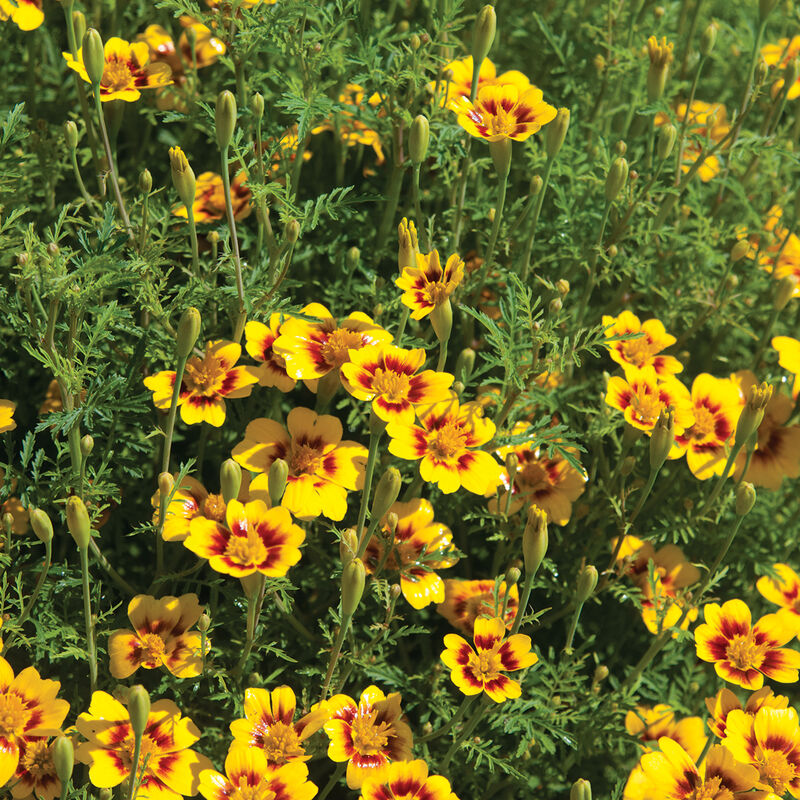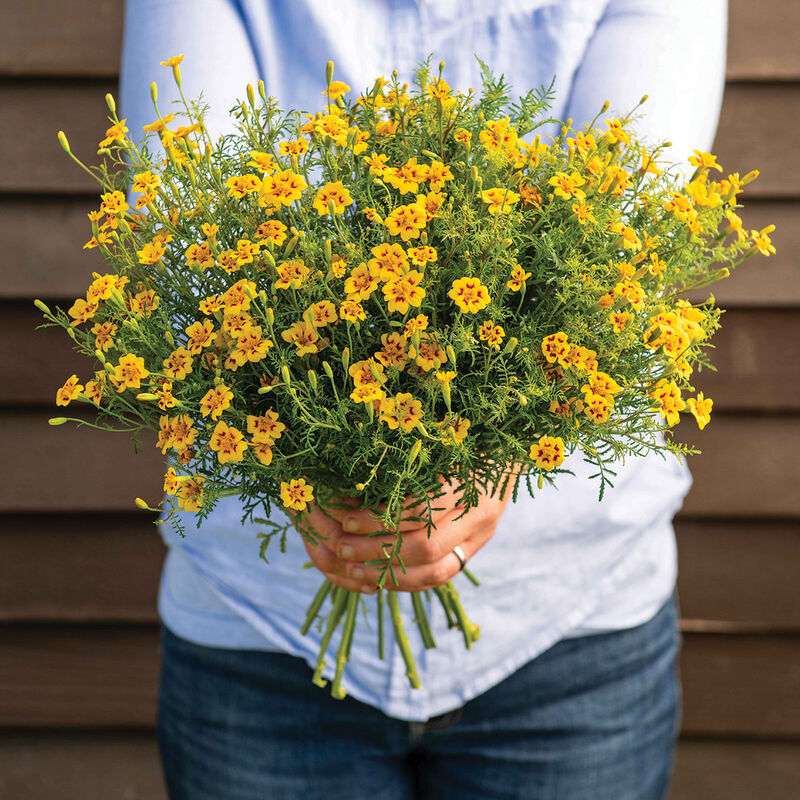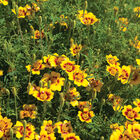Lemon Star Marigold Seed
Product ID:1979.111979
Lemon Star Marigold Seed
Product ID:1979.111979
Unique, bicolor Gem-type marigold.
Hundreds of petite flowers cover neat, low mounds of lacy foliage with a citrusy scent. ¾-1¼" flowers are lemon yellow with a maroon star-shaped pattern in the center. Long-blooming for beds, borders and containers.Specs:
DAYS TO GERMINATION:
4-7 days at 75-80°F (24-27°C)SOWING:
Transplant (recommended) - Sow into 72-cell flat or preferred seedling container 4-6 weeks before planting out, lightly covering seed. Transplant out after danger of frost. For flowering in packs, sow 8 weeks before desired bloom time. Direct seed - Sow 1/4" deep. Pinching encourages branching. NOTES: High temperatures can cause plants to stall, and temporarily decline in growth and bloom. Deadhead regularly to increase blooms.LIGHT PREFERENCE:
Sun.PLANT HEIGHT:
Varies.PLANT SPACING:
8-18". French Marigold: 8-12". Gem Marigold: 12". African Marigold: 12-18".HARDINESS ZONES:
Annual.HARVEST:
Flowers are fully open but still have tight centers.SOIL REQUIREMENTS:
Average soil. Feed moderately. pH: 6.0-7.5 preferred.USES:
Beds, borders, mass plantings, containers, and window boxes. Edible flowers, cut flowers (tall varieties).SCIENTIFIC NAME: Tagetes spp.Johnny's is committed to your success, every step of the way.
We want you, our customer, to be 100% satisfied with all of our seeds, tools, and supplies.
If anything you purchase from us proves unsatisfactory, we will either replace the item or refund the purchase price.










